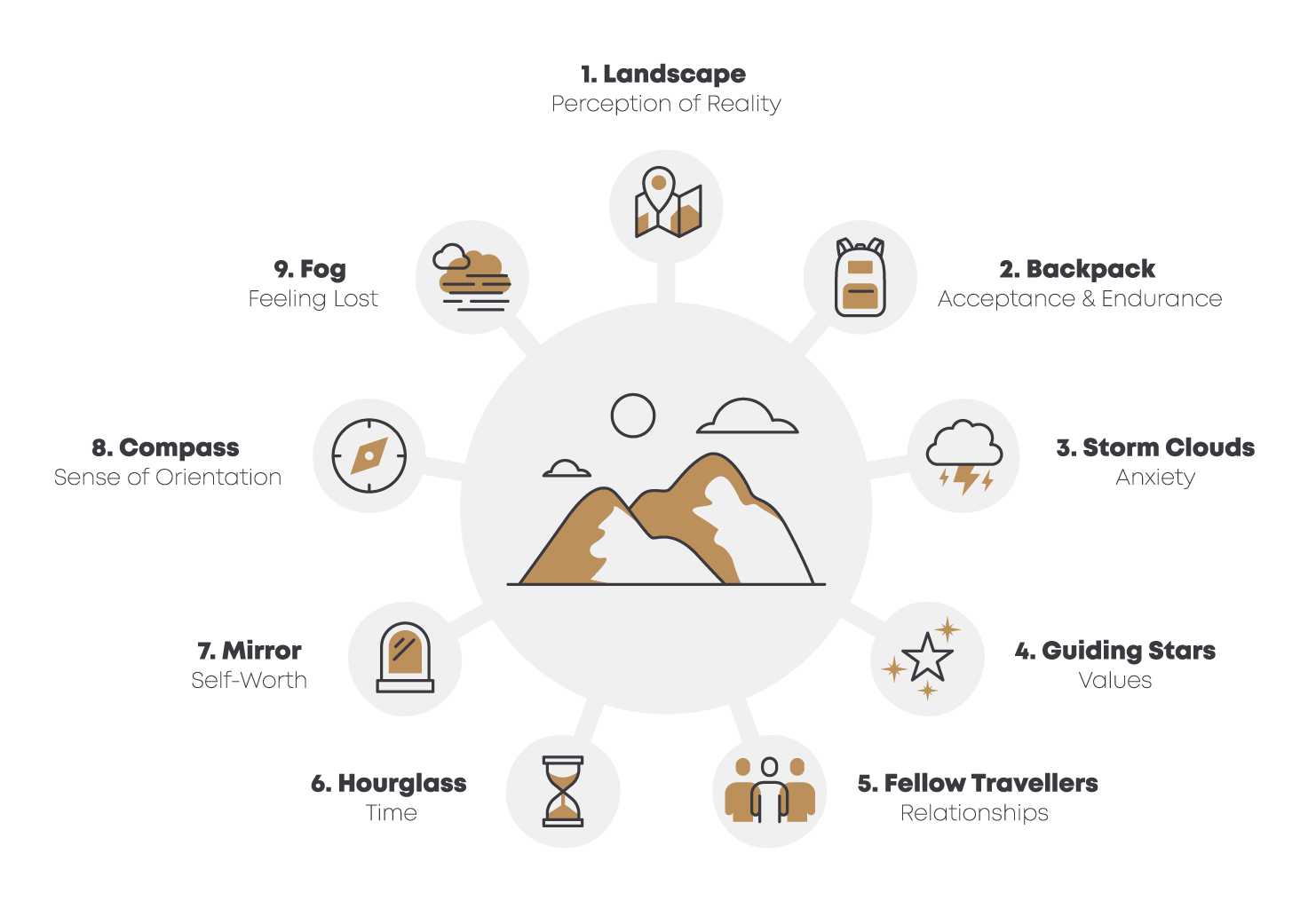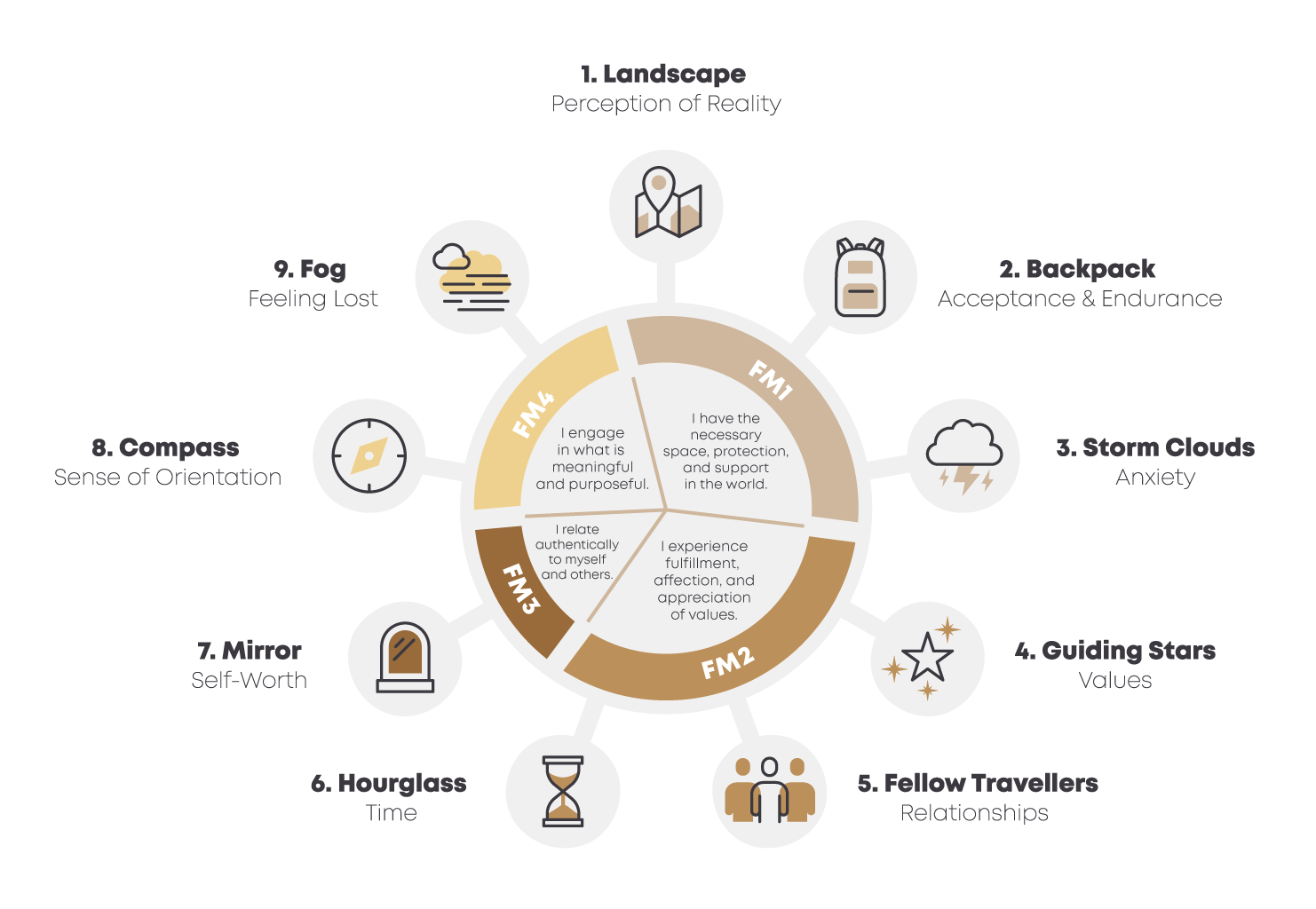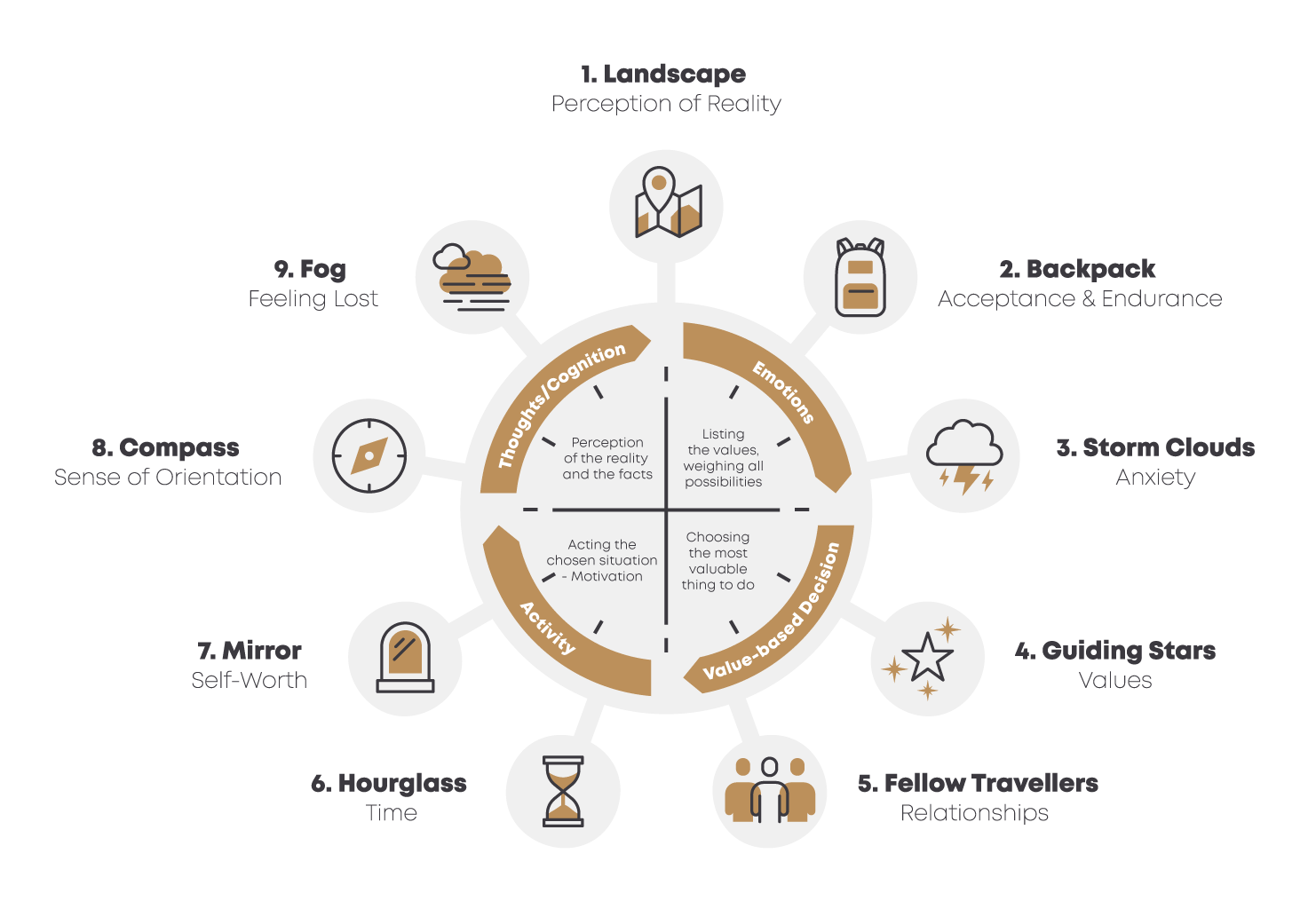Our Framework
My Motivation. My Journey. My Decisions
Mountain Framework
The Meaningful Paths Mountain Framework has been carefully developed to support meaningful, ethical, and responsible use. To protect the integrity of this work, the Meaningful Paths Mountain Framework may only be used through Meaningful Paths products and services. Any reuse or adaptation requires prior permission from Meaningful Paths Ltd.

My Motivation
Exploring the Four Fundamental Motivations:
FM1. Do I have the necessary space, protection, and support in the world?
FM2. Do I experience fulfillment, affection, and appreciation of values?
FM3. Do I relate authentically to myself and others?
FM4. Do I engage in what is meaningful and purposeful?
My Journey
Exploring the Human Experience:
A Mountain Model Metaphor comprising of 9 elements which represent our journey through life and our psychology and way of thinking during such a journey. From adjusting the straps of the Backpack (the weight of our past experiences), to the Guiding Stars as our values.
My Decisions
Working with PEA (Personal Existential Analysis:
1. Thoughts/Cognition: Perception of the reality and the facts.
2. Emotions: Listing the values, weighing all possibilities.
3. Value-based Decisions: Choosing the most valuable thing to do.
4. Activity: Acting the chosen situation – Motivation.

Framework Founders





Existential Analysis
Tradition
Our Tools/ Products are rooted in the therapeutic tradition of Existential Analysis and Logotherapy, founded by Viktor Frankl, the pioneer of meaning-centered psychotherapy. Frankl’s work highlighted the human search for meaning as central to psychological well-being.

How the Meaningful Paths Mountain Framework Supports Values, Meaning, and Purposeful Living
The Meaningful Paths Mountain Framework is a reflective model designed to support people in understanding their inner experience and navigating life through values, meaning, and purposeful living. Rather than offering fixed answers or quick solutions, the framework recognises that meaning develops through lived experience, emotional awareness, and the way we respond to life’s challenges, transitions, and uncertainties.
At the heart of the Mountain Framework is the understanding that purpose is not something to be found once and for all, but something that unfolds through relationship with what matters. Values act as guiding stars, helping individuals orient themselves even when life feels unclear, overwhelming, or stuck. Instead of asking only “What should I do with my life?”, the framework invites deeper and more compassionate questions such as: What feels meaningful to me right now? What am I responding to? What kind of life am I choosing to live?
Purposeful living, within the Meaningful Paths approach, is not about constant motivation or productivity. It acknowledges effort, pauses, doubt, emotional struggle, and renewal as natural parts of the human journey. The Mountain metaphor reflects this reality: progress is rarely linear, and moments of difficulty often carry important information about values, limits, and direction.
The framework supports individuals who feel lost, disconnected, unmotivated, or unsure of their purpose by helping them understand the relationship between motivation, personal history, emotional experience, and decision-making. Meaning is seen not as pressure or expectation, but as something that emerges when people relate honestly to themselves, others, and the world around them.
Individuals can explore and engage with the Meaningful Paths Mountain Framework in different ways. Those who prefer independent reflection can use Path Search, our self-guided app designed to help people navigate questions around purpose, values, relationships, overthinking, motivation, and emotional wellbeing. For those who benefit from relational support, Path Guide offers a coaching-based experience, where individuals are accompanied as they reflect, make sense of their experiences, and move toward what feels meaningful in their lives.
Ultimately, the Meaningful Paths Mountain Framework supports people in learning how to live with intention, self-respect, and openness to life as it is — while still moving toward what feels deeply meaningful, purposeful, and aligned with their values.


